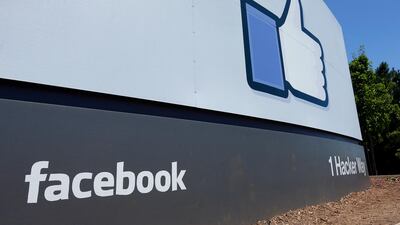Facebook has banned an Israeli-based company after investigations showed it ran a campaign to influence elections in various countries and spread misinformation through its accounts.
The social media giant removed 65 Facebook accounts, 161 pages, 23 groups, 12 events and four Instagram accounts linked to Israeli company Archimedes Group, Nathaniel Gleicher, Facebook's head of cybersecurity policy, said in a statement on Thursday.
"The individuals behind this activity co-ordinated with one another to mislead others about who they were and what they were doing, and that was the basis for our action," Mr Gleicher said. "We don’t want our services to be used to manipulate people."
Facebook has faced increased pressure to more effectively and transparently tackle misinformation that aims to breed division and confusion during elections, after the revelation that the company was slow to discover and react to Russian interference in the 2016 US elections .
The Tel Aviv-based company specialises in political consulting, lobbying, public diplomacy and international public relations, according to its website, where it publicly boasts of using social media to "change reality according to our clients' wishes."
The company's slogan, "winning campaigns worldwide", is accompanied by images from Africa, Latin America and the Caribbean, on its homepage.
Facebook said it removed the misleading accounts after discovering they were in "co-ordinated inauthentic behaviour" that focused on people in Nigeria, Senegal, Togo, Angola, Niger and Tunisia along with some activity in Latin America and Southeast Asia.
The fake pages pushed content including political news on topics such as elections in various countries, election candidate views and criticism of political opponents, which garnered 2.8 million followers. About 5,500 accounts joined at least one of their groups and around 920 people followed one or more Instagram account.
Facebook's investigation showed that the Archimedes Group spent about $812,000 on fake advertising paid for in Brazilian reals, Israeli shekel and US dollars. Mr Gliecher said the first ad ran in December 2012 with the most recent ad running in April 2019.
"We are making progress rooting out this abuse," Mr Gliecher said. "It’s an ongoing challenge."
AP said Archimedes Group did not immediately respond to its request for comment.
Facebook shared examples of the fake accounts' content that range from the Congolese presidential elections to a cartoon urging Tunisians to be wary of propaganda and manipulated images.
The tech giant has issued Archimedes Group a cease and desist letter after banning the company, Mr Gliecher said.


